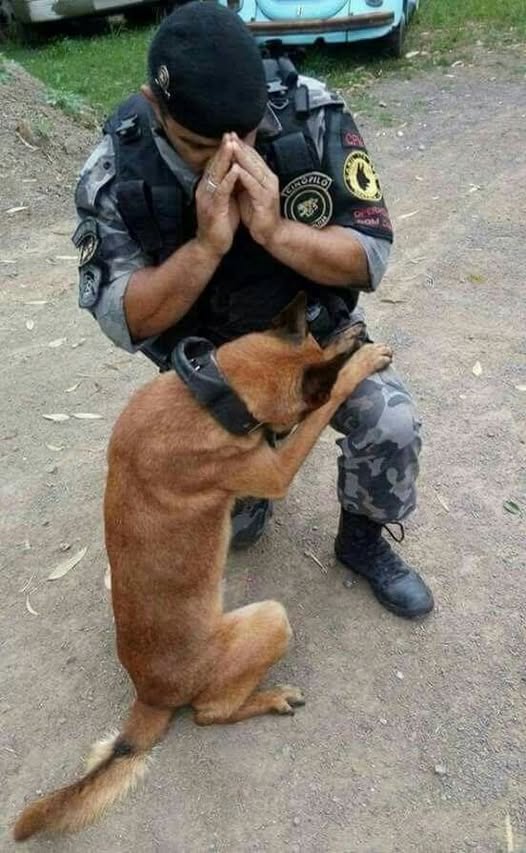I didn’t know anyone had taken a photo of me that day. Not until my sister called me in tears, voice cracking, telling me I was “everywhere.” Said the internet thought I was some kind of hero. She said the image of me kneeling in the dirt next to my K9 partner, Finch, hands clasped in prayer, face bowed under the setting sun, was “beautiful.” But no one ever asked why I was praying.
They saw the uniform. They saw Finch, his head resting on his paws like he understood the gravity of the moment. They saw what they wanted to see—faith, strength, sacrifice. But they didn’t see the truth.
I wasn’t praying because I was brave. I was begging.
Just moments before, we’d cleared a small compound in the village. Then the explosion—close enough to rattle us, but not close enough to kill. Except Finch hadn’t moved since. He was shaking, his left leg mangled and bleeding, his eyes locked on mine. He whimpered once, then fell silent. There were no medics for him. Just me, a roll of gauze, and hands that wouldn’t stop trembling.
I dropped to my knees because I didn’t know what else to do. I didn’t whisper brave words or noble oaths. I mumbled desperate things, useless things, terrified things.
It went viral within hours. People called it inspiring. Said it was a symbol of loyalty and love, of silent prayers answered in the middle of chaos. But I wasn’t thinking about symbolism. I was thinking about how I didn’t know if Finch would live.
The base vet gave me that look—the one that says don’t get your hopes up. Too much blood loss. Too much trauma. They weren’t sure he’d walk again. They weren’t sure he’d even wake up.
And the next morning, I had to go back out. War doesn’t stop because your partner might die.
